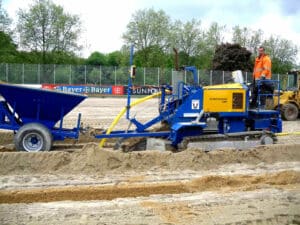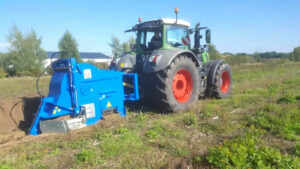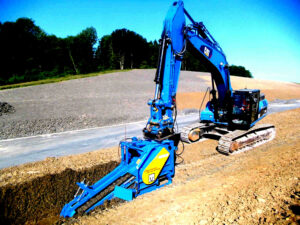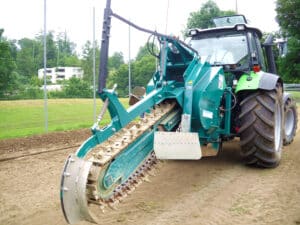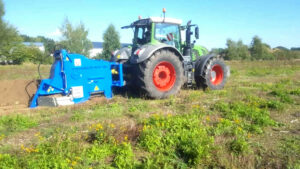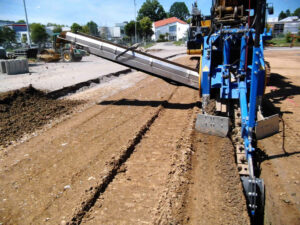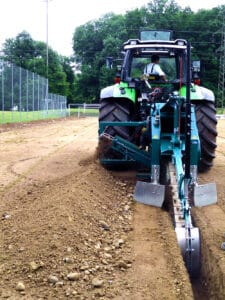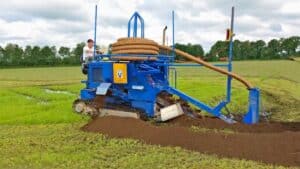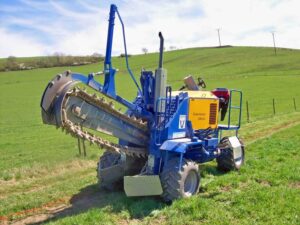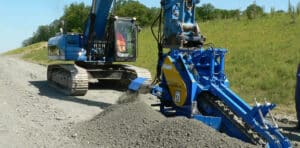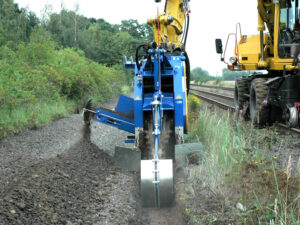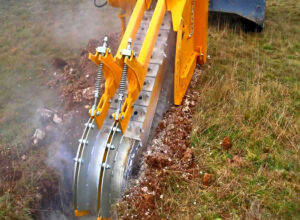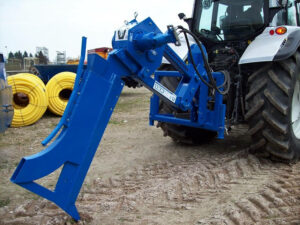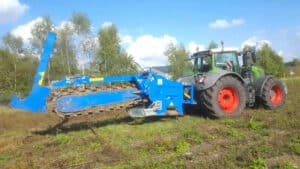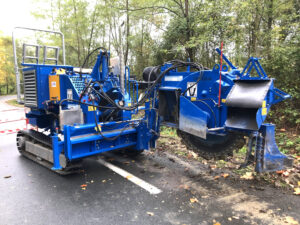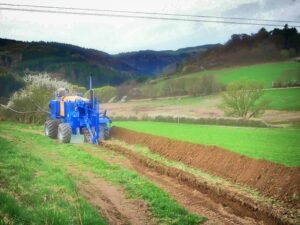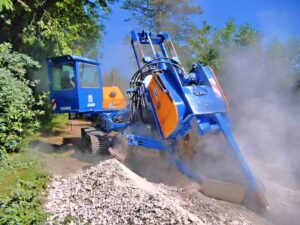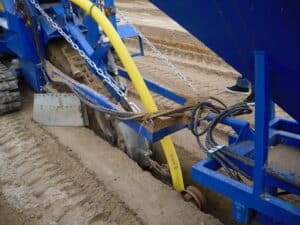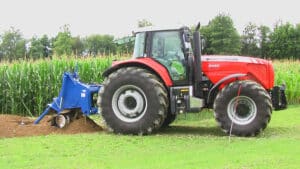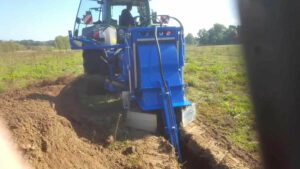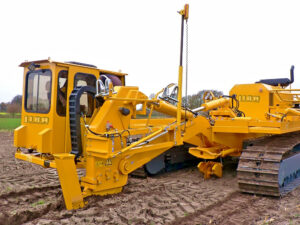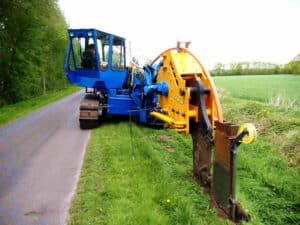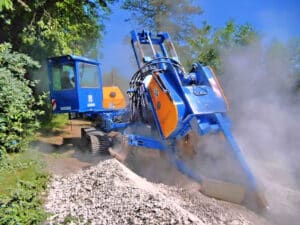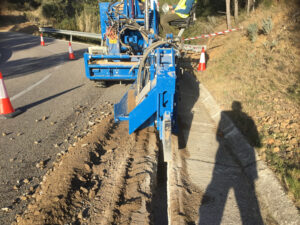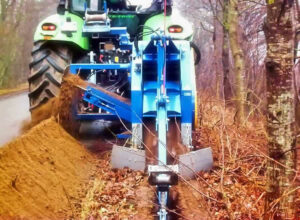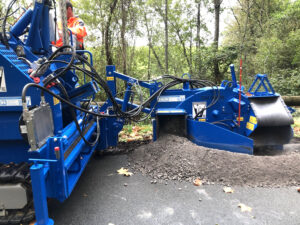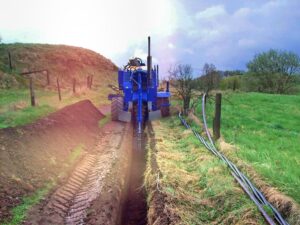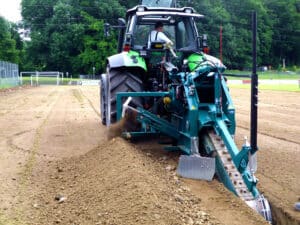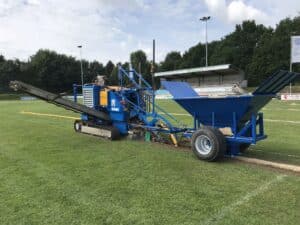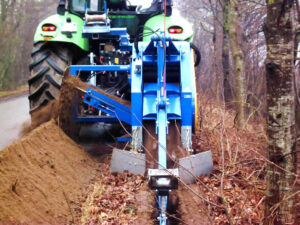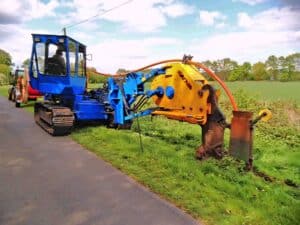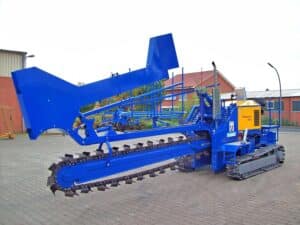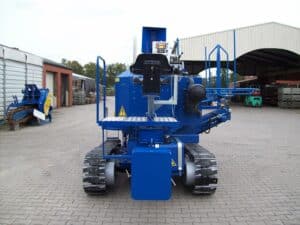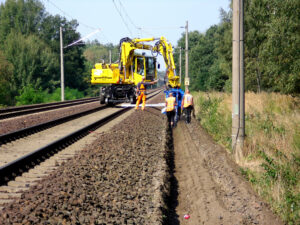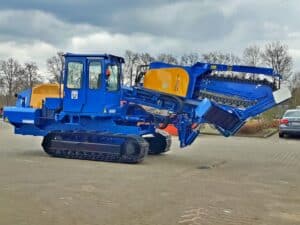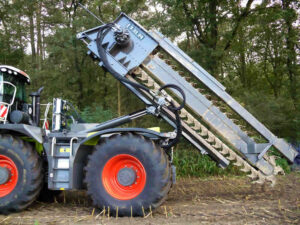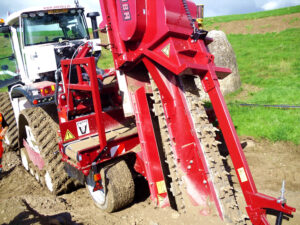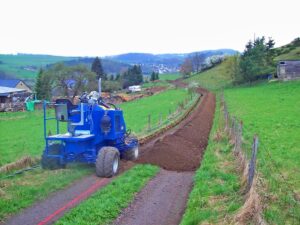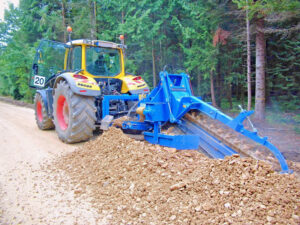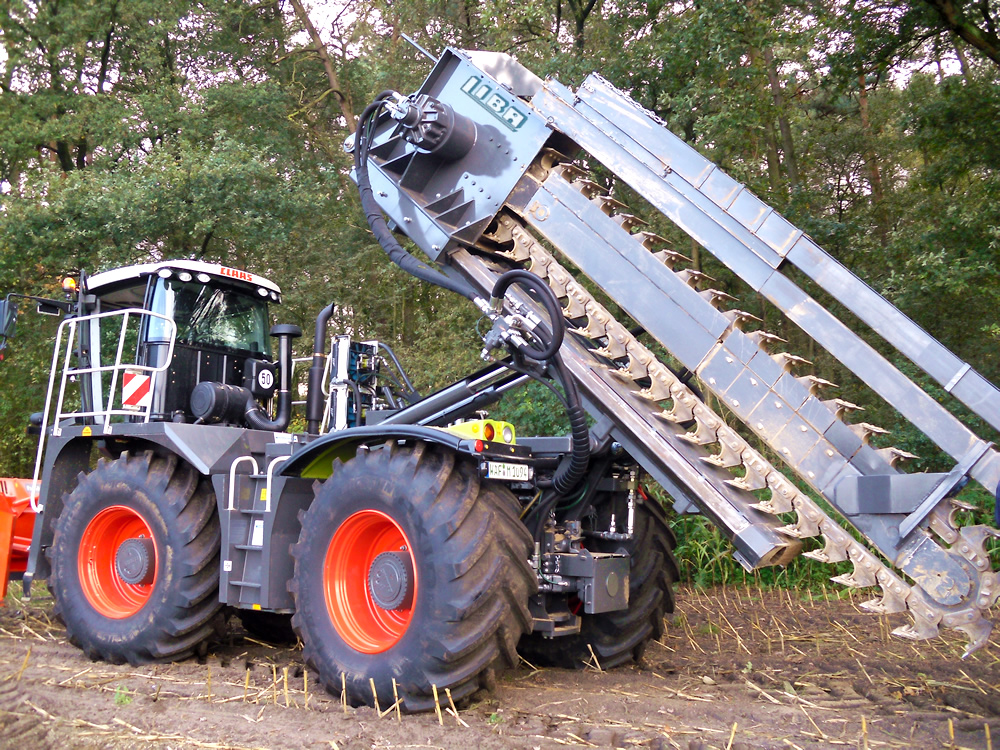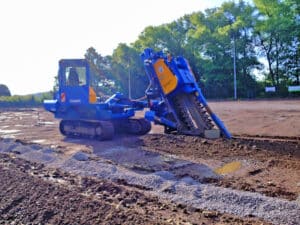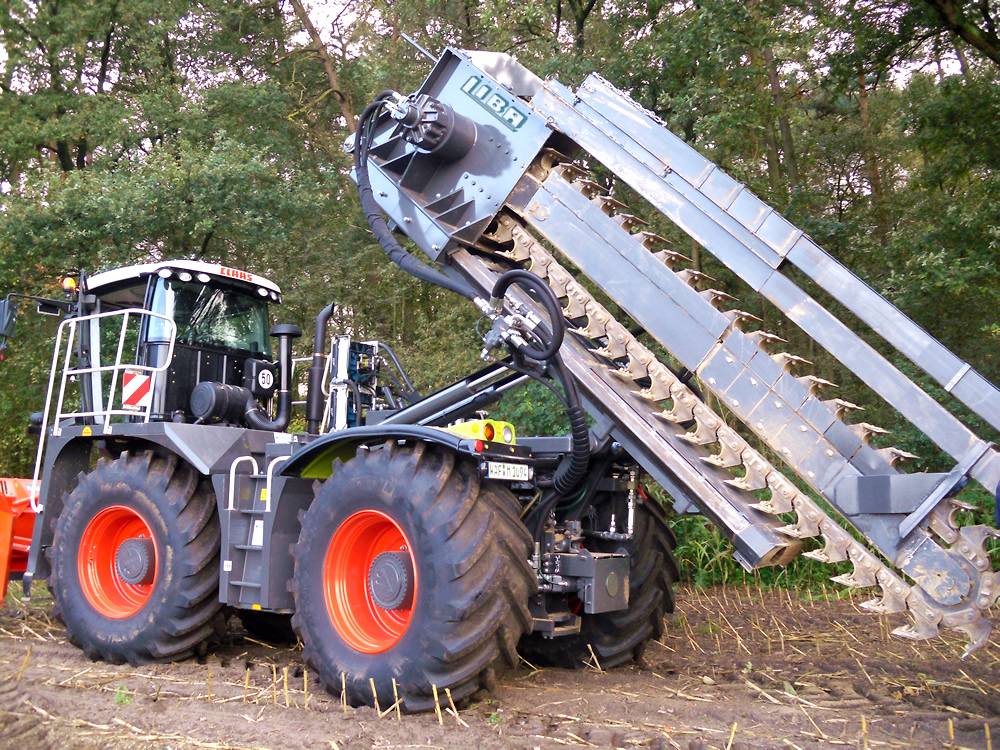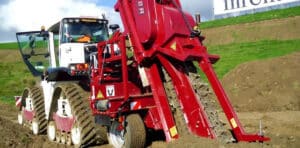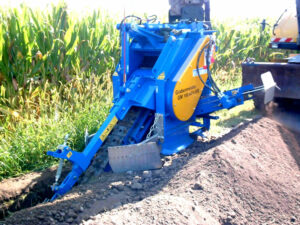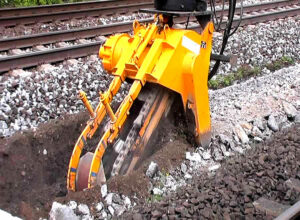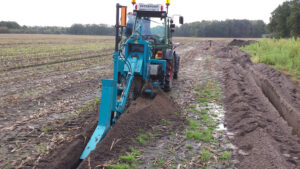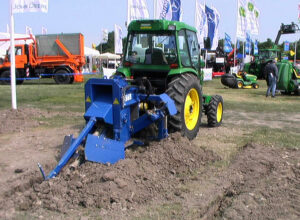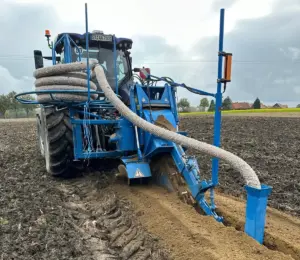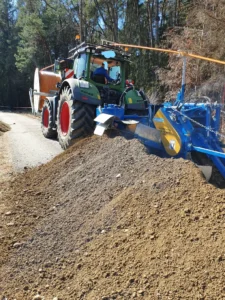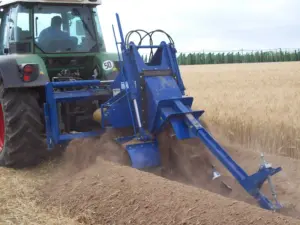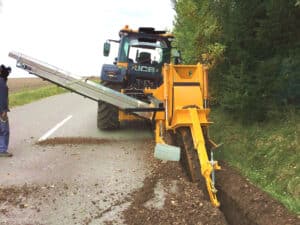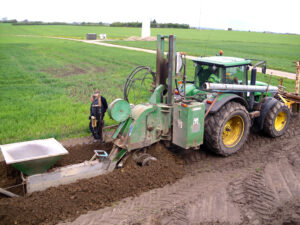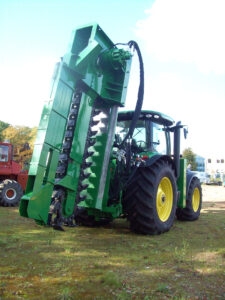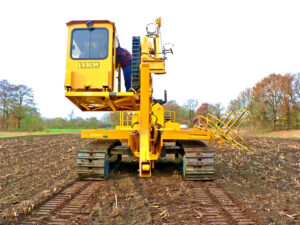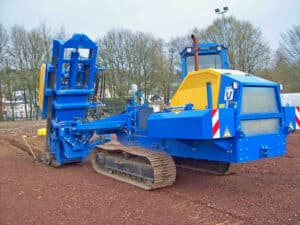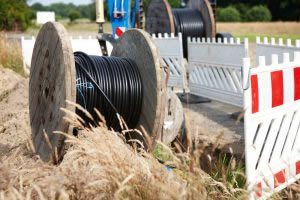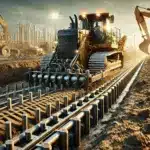A trencher is a device used for digging trenches in the ground. It is typically used in landscaping, horticulture, for laying cables, pipes and lines and in agriculture. Here are some important features and functions of a trencher:
Mode of operation: A trencher works in a similar way to a milling machine. It consists of rotating blades or shovels that penetrate and loosen the soil to form a trench.
Engine: Most trenchers are equipped with a gasoline engine or an electric motor. The motor drives the milling shaft, which in turn drives the blades or vanes.
Size and capacity: Trenchers come in a range of sizes, from small hand-held units to larger vehicle-mounted machines. The size and capacity depend on the type of work and the size of the trench to be dug.
Trench depth and width: Most trenchers offer the option of setting the depth and width of the trench to be dug. This enables flexible adaptation to the requirements of the project.
Operation: Operating a trencher generally requires a certain amount of experience and knowledge of safety precautions. Operators must ensure that they wear appropriate protective clothing during operation and ensure that no persons are in the vicinity of the work area.
Maintenance: As with all machines, regular maintenance is also required for trenchers to ensure optimum performance and extend the service life of the machine. This can include regular cleaning, lubrication and checking for wearing parts.
Applications: Trenchers are used in a variety of applications including the installation of irrigation systems, sewer lines, electrical cables, telecommunication lines and other underground infrastructure.
Advantages: The advantages of trenchers include their efficiency, accuracy and speed when excavating trenches compared to manual methods. They can also help to reduce the workload and costs.
Disadvantages: Some disadvantages of trenchers are their relatively high initial cost and the need for some training and experience to operate them. They can also cause damage to the surrounding area or underground supply lines if handled incorrectly.
A trencher can be enormously helpful in a variety of construction projects. Here are some examples where it is particularly useful:
Laying supply lines: Trenches often have to be dug when laying water pipes, gas pipes, electrical cables or communication lines. A trencher can perform this task efficiently and precisely.
Landscaping: When redesigning gardens, parks or other landscaped areas, trenchers can be used to dig trenches for drainage systems, irrigation pipes or lighting cables.
Road and path construction: When building or maintaining roads, footpaths, cycle paths or other traffic routes, trenchers can be used to dig trenches for drainage systems, kerbs or other underground structures.
Construction of foundations: When constructing buildings, bridges or other structures, it is often necessary to excavate trenches for foundations or foundation supports. A trencher can perform this task efficiently and ensure a uniform trench depth.
Drainage work: When installing or maintaining drainage systems, such as rainwater channels, drains or soakaways, trenchers can be used to excavate trenches for the pipes.
Agriculture: In agriculture, trenchers can be used to install irrigation systems, drainage systems or to prepare fields for planting or harvesting crops.
Commercial and industrial construction: During the construction of commercial or industrial facilities, trenchers can be used to excavate trenches for underground supply lines, wastewater pipes or other infrastructural facilities.
Overall, the trencher is a versatile tool that is widely used in various industries, helping to complete trenching jobs more efficiently and effectively, and provides tremendous value in a variety of construction projects by digging trenches quickly, accurately and efficiently, saving time and labor costs.
LiBa is a leading supplier of trenchers and other construction machinery. The company has earned an excellent reputation for the quality of its products, reliability and innovation in the construction industry.
LiBa offers a wide range of trenchers suitable for various applications and projects. From hand-held trenchers for smaller jobs to larger, vehicle-mounted units for more extensive construction projects, LiBa offers solutions for a wide range of requirements.
LiBa trenchers are characterized by their robust design, high performance and user-friendliness. They are designed to work efficiently and precisely to dig trenches quickly and cleanly.
In addition, LiBa continuously invests in research and development to improve its products and meet the ever-changing requirements of the construction industry. This commitment to innovation and quality has made LiBa a trusted partner for construction companies around the world.
Overall, LiBa is a first-class choice for contractors looking for high-quality trenchers that meet the requirements of their projects. With its many years of experience and commitment to excellence, LiBa is a leading supplier in the construction machinery industry.

